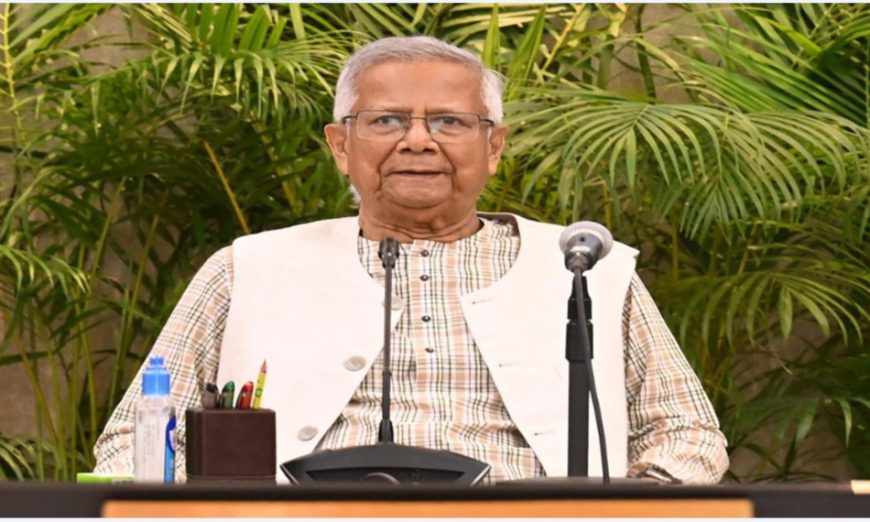Bangladesh will observe August 8 as ‘New Bangladesh Day’ to mark the anniversary of swearing-in of the interim government led by Nobel laureate Muhammad Yunus who took over three days after the fall of Sheikh Hasina government on August 5 last year, following a student-led uprising.
The government has also announced August 5 as ‘July Uprising Day’. Besides, the government declared July 16 as Martyr Abu Sayeed Day, in remembrance of the student who was killed in police firing in Rangpur during the mass movement. The Cabinet Division issued separate circulars yesterday confirming the decision.
Meanwhile, a 36-member national committee was formed to oversee the observance of mass uprising days in July and August, marking the anniversary of last year’s student-led movement, reports United News of Bangladesh (UNB).
Chief Adviser Prof Muhammad Yunus will serve as the chairperson of the committee.The 36-day long programme will be celebrated from July 1 to August 5 to mark the anniversary of the July Uprising, reports UNB.
The decision to observe August 8 annually has triggered strong responses from various political and administrative circles across Bangladesh. Supporters call it a day of hope and new beginnings, while critics see it as a politically sensitive move.
The government has also announced July 16 will now be observed as ‘Shaheed Abu Sayed Day’. This day commemorates the death of student protester Abu Sayed, who was reportedly killed in police firing during a protest in Rangpur. A total of five people lost their lives in those clashes.
Separate notifications have been issued for both commemorative days. The government has instructed all related ministries, departments, and agencies to properly observe these days every year.
These dates have been classified under the “Kha” category, as per the national and international observance guidelines. This category includes days of historical and social importance which are to be observed in an appropriate and respectful manner.
Local media reports suggest that the announcement has sparked discussions nationwide, with many viewing it as a formal recognition of the public uprising that reshaped the country’s leadership.

